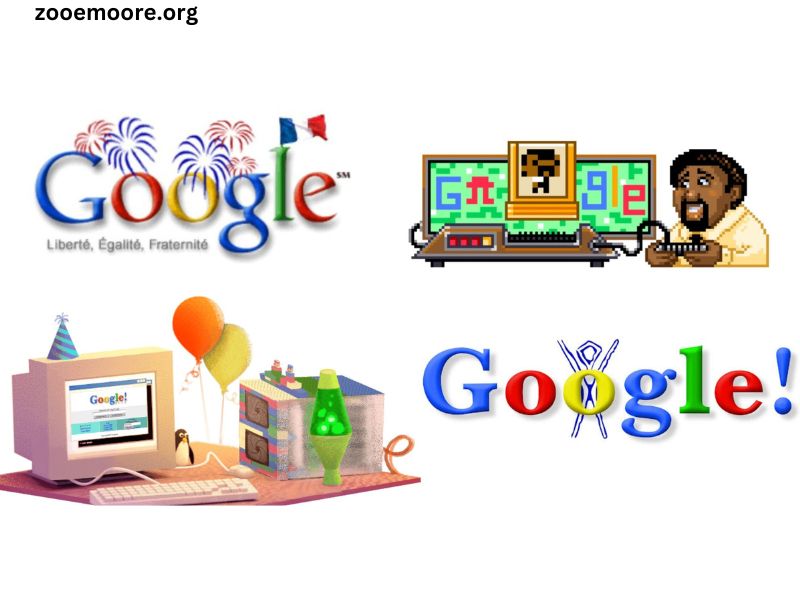In the rapidly evolving world of technology and digital innovation, few milestones are as significant as the 25th anniversary of Google. Founded on September 4, 1998, by Larry Page and Sergey Brin, Google has transformed from a simple search engine into a global technology powerhouse that influences countless aspects of modern life. As we mark this significant anniversary, it is crucial to reflect on Google’s journey, its impact on the digital landscape, and what the future might hold for this iconic company.
The Genesis of Google
Google’s story began in a Stanford University dorm room where Larry Page and Sergey Brin, both Ph.D. students, conceived a revolutionary idea. Their goal was to create a search engine that could deliver more relevant and reliable search results than the existing options. At the core of their innovation was a unique algorithm named PageRank, which assessed the importance of web pages based on the number and quality of links pointing to them.
Initially called “Backrub,” the project was soon renamed “Google,” a play on the mathematical term “googol,” which represents the number 1 followed by 100 zeros. The name symbolized the founders’ ambition to organize the vast amount of information available on the web and make it universally accessible and useful.
Early Days and Rapid Growth
Google’s early success was fueled by its user-friendly interface and superior search capabilities. Unlike its competitors, Google offered a clean, minimalist design that focused solely on the search function. This approach resonated with users, leading to rapid adoption and growth. By 2000, Google had become the most popular search engine, and its dominance in the search market was firmly established.
The company’s growth was not limited to search. Google began to expand its services and offerings, introducing innovations such as Google News, Google Images, and Google Maps. Each of these products further cemented Google’s position as a leader in the tech industry, providing users with a comprehensive suite of tools for navigating and understanding the digital world.
Diversification and Technological Advancements
As Google entered its second decade, the company embarked on a path of diversification and technological innovation. In 2004, Google went public, and its initial public offering (IPO) was a massive success. This move provided the company with the financial resources needed to pursue ambitious projects and acquisitions.
One of Google’s most significant acquisitions was YouTube, purchased in 2006. This acquisition allowed Google to tap into the burgeoning video-sharing market and establish itself as a dominant player in online video. The integration of YouTube into Google’s ecosystem has since revolutionized how people consume and share video content, contributing to the platform’s status as a leading video-sharing service.
In 2008, Google launched the Android operating system, a strategic move that further broadened its influence in the tech world. Android quickly gained traction, becoming the most widely used mobile operating system globally. This success positioned Google at the forefront of the smartphone revolution and allowed it to leverage its ecosystem across a wide range of devices.
The Era of Artificial Intelligence and Machine Learning
Entering the 2010s, Google intensified its focus on artificial intelligence (AI) and machine learning. The company made significant strides in these areas, leveraging its vast data resources and computational power to develop advanced AI technologies. Google’s AI research led to the creation of tools like Google Assistant, a virtual assistant that uses natural language processing to provide users with personalized assistance and information.
Google’s acquisition of DeepMind in 2014 marked a pivotal moment in its AI journey. DeepMind, a leading AI research company, contributed to groundbreaking advancements in AI, including tools that revolutionized creative processes such as generating realistic visuals. This demonstrated the potential of technologies like an AI image generator to tackle complex creative challenges and drive innovation across various fields.
The integration of AI into Google’s products has enhanced user experiences and driven efficiency. From personalized search results to intelligent recommendations on YouTube, AI has become an integral part of Google’s offerings, shaping how users interact with technology.
The Impact on Digital Advertising and E-Commerce
Google’s influence extends beyond search and technology. The company has revolutionized digital advertising through its AdWords (now Google Ads) platform. Launched in 2000, Google Ads has become a cornerstone of online advertising, enabling businesses to reach their target audiences through targeted ads based on user search queries and browsing behavior.
The success of Google Ads has had a profound impact on the advertising industry, driving the growth of digital marketing and changing how businesses approach online advertising. Google’s dominance in this space has also raised questions about competition and regulatory scrutiny, as the company’s practices have come under increasing examination by regulators worldwide.
In addition to advertising, Google has made significant inroads into e-commerce through its Google Shopping platform. This service allows users to search for products, compare prices, and make purchases directly through Google’s interface. By integrating e-commerce into its search and advertising offerings, Google has created a seamless shopping experience that benefits both consumers and businesses.
Challenges and Controversies
Despite its successes, Google has faced its share of challenges and controversies. The company has been scrutinized for issues related to user privacy, data security, and market dominance. Critics have raised concerns about Google’s data collection practices and the potential misuse of user information.
Regulatory bodies in various countries have also investigated Google’s market practices, leading to legal battles and fines. The European Union, in particular, has been active in addressing antitrust concerns related to Google’s search practices and advertising strategies. These challenges highlight the complexities of operating a global technology company and the need for ongoing transparency and accountability.
The Future of Google
As Google celebrates its 25th anniversary, the company is poised to continue its trajectory of innovation and growth. The future promises new advancements in AI, cloud computing, and digital services. Google’s focus on sustainability and ethical technology development will likely play a crucial role in shaping its future direction.
The company’s commitment to research and development, coupled with its vast resources and talent pool, positions it to lead in emerging technologies and address global challenges. As the digital landscape evolves, Google will remain a central player, driving progress and shaping the future of technology.
Conclusion
The 25th anniversary of Google is a momentous occasion that underscores the company’s remarkable journey from a university project to a global tech giant. From its innovative search engine to its advancements in AI and digital advertising, Google has significantly impacted the digital world and transformed how we interact with technology.
As we look ahead, Google’s continued focus on innovation and its commitment to addressing challenges will be crucial in shaping its future. The next 25 years will undoubtedly bring new opportunities and challenges, but Google’s legacy of innovation and excellence ensures that it will remain a pivotal force in the tech industry.
In celebrating Google’s anniversary, we acknowledge not only its achievements but also the broader impact it has had on our digital lives. As Google continues to evolve and adapt, it will undoubtedly continue to influence and shape the future of technology for years to come.



